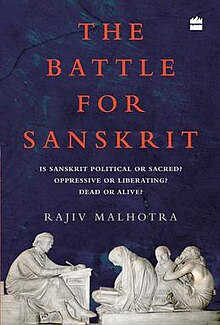
Damayanti is a character in a love story found in the Vana Parva book of the Mahabharata. She is the daughter of Bhima and a princess of the Vidarbha Kingdom, who marries King Nala of the Nishadha kingdom. The character is also found in other Hindu texts by many authors in numerous Indian languages. She, along with Nala, are the central characters in the 12th century text Nishadha Charita, one of the five mahakavyas in the canon of Sanskrit literature, written by Sriharsha.
Indology, also known as South Asian studies, is the academic study of the history and cultures, languages, and literature of the Indian subcontinent, and as such is a subset of Asian studies.

Wendy Doniger O'Flaherty is an American Indologist whose professional career has spanned five decades. A scholar of Sanskrit and Indian textual traditions, her major works include The Hindus: An Alternative History; Asceticism and Eroticism in the Mythology of Siva; Hindu Myths: A Sourcebook; The Origins of Evil in Hindu Mythology; Women, Androgynes, and Other Mythical Beasts; and The Rig Veda: An Anthology, 108 Hymns Translated from the Sanskrit. She is the Mircea Eliade Distinguished Service Professor of History of Religions at the University of Chicago, and has taught there since 1978. She served as president of the Association for Asian Studies in 1998.
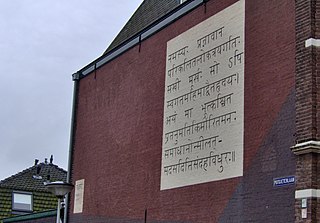
Sanskrit has been studied by Western scholars since the late 18th century. In the 19th century, Sanskrit studies played a crucial role in the development of the field of comparative linguistics of the Indo-European languages. During the British Raj (1857–1947), Western scholars edited many Sanskrit texts which had survived in manuscript form. The study of Sanskrit grammar and philology remains important both in the field of Indology and of Indo-European studies.

Bibek Debroy is an Indian economist, serving as the chairman of the Economic Advisory Council to the Prime Minister of India. He is also the Chairman of the Finance Ministry's 'Expert Committee for Infrastructure Classification and Financing Framework for Amrit Kaal'. Debroy has made significant contributions to game theory, economic theory, income and social inequalities, poverty, law reforms, railway reforms and Indology among others. He is also an anchor for the fortnightly show Itihasa on Sansad TV.

Vaishampayana is the traditional narrator of the Mahabharata, one of the two major Sanskrit epics of India.
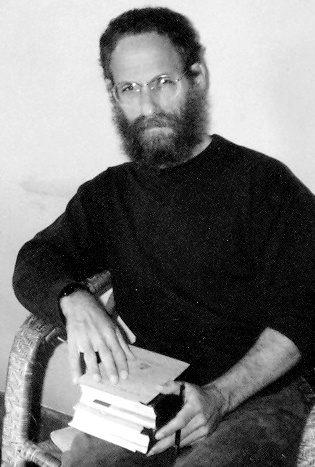
Sheldon I. Pollock is an American scholar of Sanskrit, the intellectual and literary history of India, and comparative intellectual history. He is the Arvind Raghunathan Professor of South Asian Studies at Columbia University. He was the general editor of the Clay Sanskrit Library and the founding editor of the Murty Classical Library of India.

Indra's Net: Defending Hinduism's Philosophical Unity is a 2014 book by Rajiv Malhotra, an Indian-American author, philanthropist and public speaker, published by HarperCollins.

Rajiv Malhotra is an Indian-born American Hindutva ideologue, author and founder of Infinity Foundation, which focuses on Indic studies, and also funds projects such as Columbia University's project to translate the Tibetan Buddhist Tengyur.
Virata Parva, also known as the “Book of Virata”, is the fourth of eighteen books of the Indian epic Mahabharata. Virata Parva traditionally has 4 parts and 72 chapters. The critical edition of Virata Parva has 4 parts and 67 chapters.
The Shalya Parva, or the Book of Shalya, is the ninth of eighteen books of the Indian epic Mahabharata. Shalya Parva traditionally has 4 parts and 65 chapters. The critical edition of Shalya Parva has 4 parts and 64 chapters.
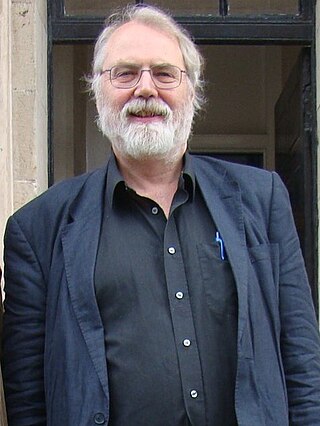
Paul Dundas was a British Indologist and an honorary fellow in Sanskrit language and Head of Asian studies at the University of Edinburgh. His teachings and research focused extensively on understanding Jainism, Buddhism, Sanskrit literature and Middle Indo-Aryan philology. He was regarded as one of the leading scholars in Jaina and Prakrit studies. He was a member of the Council of the Pali Text Society.
Hindu studies is the study of the traditions and practices of the Indian subcontinent, and considered as a subfield of Indology. Beginning with British philology in the colonial period, Hindu studies has been practiced largely by Westerners, due in part to the lack of a distinct department for religion in Indian academia. Since the 1990s this has caused some dissent from Hindus, raising questions in academia about the role of Hindu studies in creating postcolonial images of India.

Invading the Sacred: An Analysis of Hinduism Studies in America is a book published in 2007 by Rupa & Co. which argues that there are factual inaccuracies in Hindu studies. The editors of the book are Krishnan Ramaswamy, Antonio T. de Nicolás, and Aditi Banerjee. The book has contributions from Arvind Sharma of McGill University, S. N. Balagangadhara of Ghent University, psychoanalyst Alan Roland, Yvette Rosser, Ramesh N. Rao, Pandita Indrani Rampersad, Yuvraj Krishnan, and others. Rajiv Malhotra played a large role in drafting most of the book's content. He stated that through this book, he intended to bring attention to, and provide a counter-argument to, the prevalent Freudian psychoanalytical critiques of Hinduism in the American Academy of Religion's RISA group. After the controversy surrounding Wendy Doniger's book The Hindus: An Alternative History erupted in India, the authors decided to make it freely available online as it critiques a major part of her work.

Neo-Vedanta, also called Hindu modernism, neo-Hinduism, Global Hinduism and Hindu Universalism, are terms to characterize interpretations of Hinduism that developed in the 19th century. The term "Neo-Vedanta" was coined by German Indologist Paul Hacker, in a pejorative way, to distinguish modern developments from "traditional" Advaita Vedanta.
Pūrva paksha, sometimes also transliterated as Poorva paksha, literally means former view/position. It is a tradition in the debates of Indian Logicians. It involves building a deep familiarity with the opponent's point of view before criticising it. The purva paksha approach has been used by Adi Shankaracharya as well as Ramanuja and later acharyas in their works.
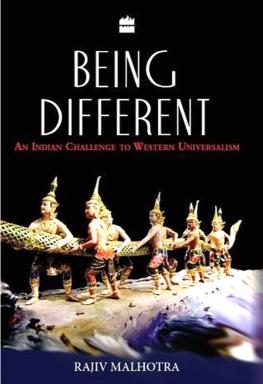
Being Different: An Indian Challenge to Western Universalism is a 2011 book by Rajiv Malhotra, an Indian-American author, philanthropist and public speaker, published by HarperCollins. The book reverts the gaze of the western cultures on India, repositioning India from being the observed to the observer, by looking at the West from a Dharmic point of view.
Rohan Narayana Murty is a junior fellow at the Harvard Society of Fellows, founder of the Murty Classical Library of India and founder and chief technical officer of the digital transformation company Soroco, which specialises in automation using artificial intelligence sources.
The Murty Classical Library of India began publishing classics of Indian literature in January 2015. The books, which are in dual-language format with the original language and English facing, are published by Harvard University Press. The Columbia University scholar, Sheldon Pollock, is the library's general editor. Pollock previously edited the Clay Sanskrit Library. The library was established through a $5.2 million gift from Rohan Murty, the son of Infosys co-founder N. R. Narayana Murthy and social worker and author Sudha Murty. The series will include translations from Bengali, Gujarati, Hindi, Kannada, Marathi, Punjabi, Sanskrit, Tamil, Telugu, Urdu, other Indian languages and Persian. It will include fiction, poetry, nonfiction, and religious texts from all Indian traditions including Buddhism and Islam. The projected 500 volumes, to be published over a century, have a corpus of thousands of volumes of classic Indian literature to draw on.
Political philology is "an active mode of understanding" texts. It does not simply take (religious) texts at face-value as religious texts without any connection to a social and political context, but situates them in a historical context, and is sensitive to the social and political implications and usages of a (religious) text.
